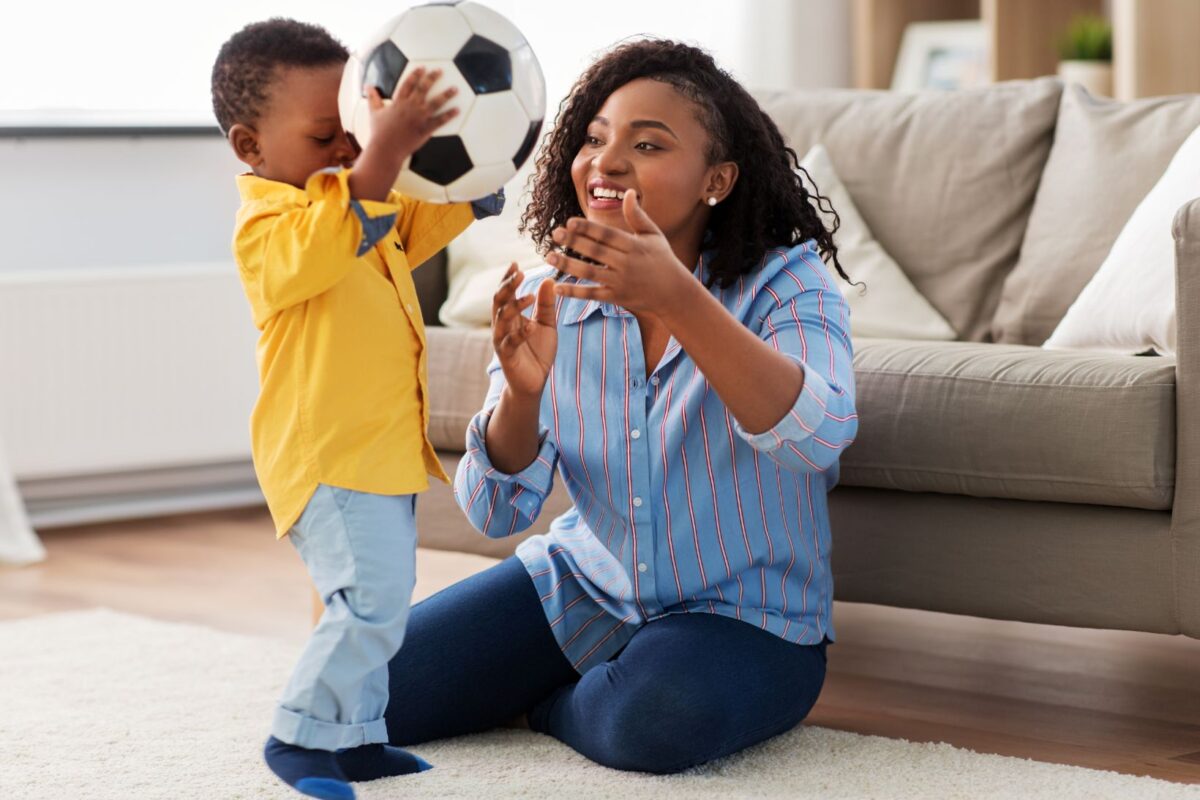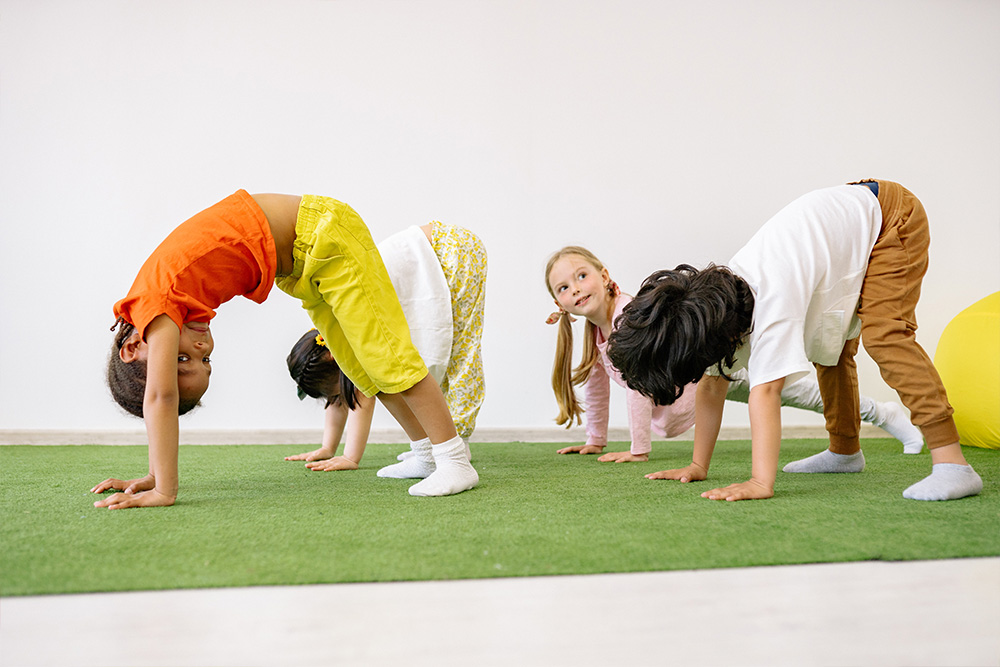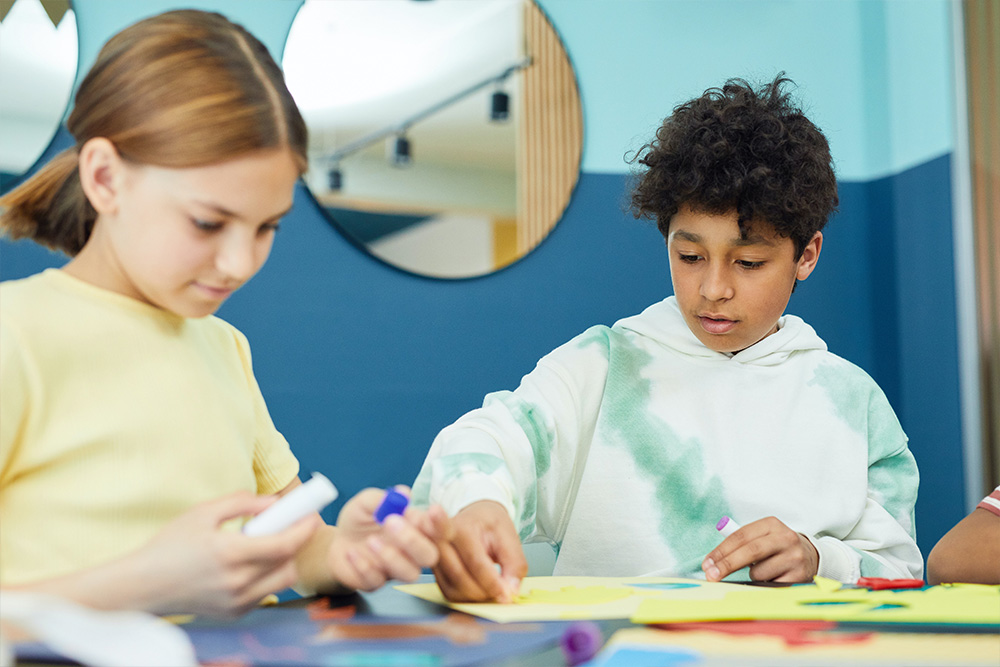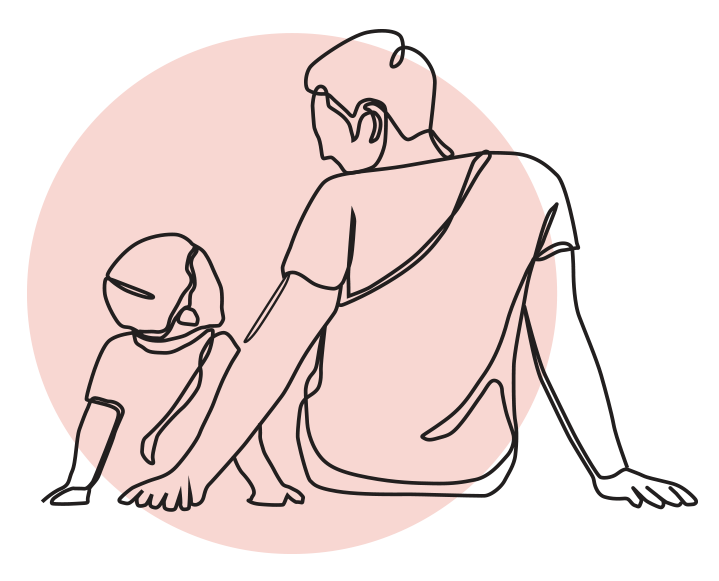January is a great time to re-evaluate and take stock of what’s important in our lives. Many of us start the year with great intentions but inevitably revert to past behaviours. It’s human nature. However, some goals we set ourselves are just too big for us to maintain.
We suggest focusing on those smaller more manageable ways to create change. We’ve put together some easy-to-implement resolutions for parents to incorporate into their everyday lives. Why not see if just one of these resonates with your hopes for the year and try and focus on that one?
Five to ten-minute ideas that can help both you and your child.
Our Simple Ideas for Parenting New Year Resolutions
Let my Child Experience Boredom
‘I will delay offering my child a screen for ten minutes each time I would usually give it to them.’

There’s nothing wrong with a little boredom. Parents today tend to ‘fill the gaps’ with screen-time’ instead of allowing chidrens’ minds and bodies to wander.
To be clear, handing over a device is not a bad thing in itself. It can save our children from completely unnecessary melt-downs, it can be a positive learning experience or it can simply bring them joy. It also gives us parents a break, which is ultimately good for our children. Survival is everything and in parenting, for our mental health, we are obviously going to make use of something that helps everyone calm down.
However it’s easy to forget that boredom is an opportunity for discovery and invention and with such easy access to screens these days, children are rarely left to be ‘bored’. Boredom creates space for new thoughts to emerge and imagination to flourish. It also might allow space for frustration and difficult feelings, certainly when we initially resist giving them access to the device. But like all new resolutions, ‘you can have it in ten minutes’ will become the new ‘normal’ and less frustrating for your child when they adapt. You might even be surprised at how quickly they find something else to do of their own accord. Particularly with younger children who may end up exploring their toys and playing creatively instead.
We are not helping our children by distracting them with new stimuli whenever there is downtime. It’s important for their development as human beings to not always be responding to new stimuli. The content on devices is highly stimulating which means they are not relaxing physiologically speaking, even if it’s relaxing for us. Over-use of screens has been linked to an increase in anxiety amongst teens so it’s important that we are teaching children that it’s possible to do ‘nothing’ from an early age. Replacing downtime with screen-time doesn’t give them a chance to process what has just happened or learn to be ‘in the moment’.
We wear many hats and sometimes the juggling becomes quite intense. When a child is bored and we’re in the middle of cooking an evening meal, sending that email we’ve been waiting to send all day, or even just enjoying a little quiet time, a child requiring that extra attention at a busy point in our day, can, let’s face it sometimes be one too many juggling balls. The easy option is to reach for the technology and let them play a game or watch their favourite YouTuber. But what if we delayed the handover by just ten minutes to see where the ten minutes could take them?
So our first parenting New Year resolution is to give them the joy of boredom!
It may be hard at first but it will get easier. The long-term benefits are likely to see an anxiety reduction and an ability to self-regulate.
Child-led Play
‘I will spend ten minutes playing with my child each day, in a way that they choose (child-led). I will follow their ideas and do nothing else simultaneously, focussing on them entirely.’
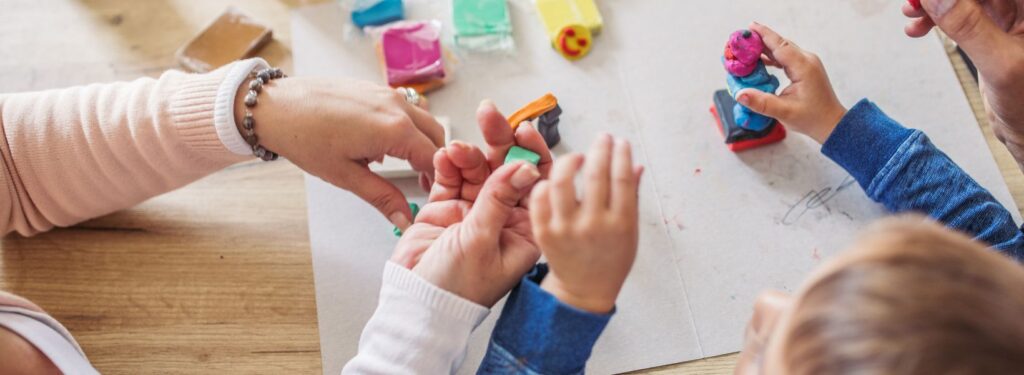
Child-led play is a gift. It’s beautiful to observe and can provide so much insight into a child’s unique personality. And play is how young children communicate their feelings best. Letting them take the lead gives you opportunities to meet your child’s emotional needs at the place they want to be met as well as giving you a window into their inner life.
It is a great chance for a child to explore and learn through their own amazing imaginations. With so much wonder and magic, running with their idea gives children the space to be as creative as they wish and to feel powerful. It will drive their need for exploration and will play a large part in their personal development. It builds resilience, self-confidence, and the ability to constructively manage their feelings. It will also support your child’s cognitive skills, emotional well-being, and social interaction.
Add into the mix a parent or loved one, and it will bring you both so much joy. It will enhance your bond and promote happiness and an even better sense of well-being. Plus, you’ll learn more about your child each time you play.
For just ten minutes a day, both child and parent will feel a sense of enrichment.
Reflect on the Day Together
‘I will spend five minutes at the end of each day talking to my child calmly (in bed or bath) remembering what they did that day and finding out how they felt.’

At the end of the school day, each of us will have experienced the response that ensues after the question: ‘What did you do today?’ Very rarely will it be a full account or even a brief overview of the past several hours. More likely to be ‘I don’t know’ or ‘nothing’.
The simple fact is that as parents our timing isn’t always the best and that can be quite a hard question to answer. The last thing a child wants to do is recount the day straight after the event when they may be exhausted, managing the transition out of nursery/school etc. Bedtime or even bathtime for younger children, is a good time to have a little chat and gather a little information to a) ensure they’re happy, b) for them to voice concerns or worries, and c) ask you questions they’ve stored up from throughout the day.
Why bedtime or bathtime? When your child is relaxed and there are no other stimuli to distract them they are more likely to talk. When they have your full attention and you have theirs this can become a cosy, bonding time when a little chat about the day is a pleasure for both.
By spending just five minutes processing things together at the end of the day, you will learn so much more than if broached earlier or abandoned altogether. It will help your child to start to connect their inner and outer lives and overall enrich their experiences of the world. They will also go to sleep knowing that you care.
House ‘Rules’ or ‘Boundaries’ for Children
‘I will clarify our family ‘rules’ or ‘consequences’ so my child/ren knows what our boundaries are and what the consequences will be for crossing them.’
Towards the end of 2023, do you feel like some of those rules you’d determined previously just seemed to fly out of the window? If you feel this way, maybe it’s a good time to get those rules back and make those consequences clear.
Children flourish better with a sense of routine. The same goes for rules and consequences. Actions have consequences and we are doing our children no favours if we let these slip in the early years. Consequences are not about punishing, they are about taking responsibility for our actions.
Three things to remember:
- Be consistent
- Be concise
- Be firm but fair
Oh and definitely, remember to agree with any other adults in the house. Not being on the same page as your partner will create confusion and could undo any hard work you’ve achieved.
Spontaneous & Specific Child Praise
‘I will notice something positive my child has done or said and I will show them my appreciation.’

We all need praise in our lives. In a world where criticism and opinion are everywhere, being told you’ve done a good job can be a massive lift.
So, how about being more spontaneous and specific in our praise to our children?
Being specific when praising a child can easily be missed. The general approach of ‘well done’ or ‘good job’ for example is really important but going that little bit further by including a few extra words explaining why, will help your child develop their understanding of kindness, support, and empathy.
Take a little extra time to reflect on why they were good and what they did well i.e. ‘I loved the way you checked your sister was OK when she fell over’. By adding context, you’ll help reinforce the specific meaning of such gestures. Praise and explanation will nurture your child’s confidence and show them how much you value the qualities that may not always be recognised by others in an often fast-paced, goal-oriented world.
If you are feeling overwhelmed by conflicting advice on how to support your children, our online parent coaching consultations provide advice & support when you need it. Our therapists are here to help. Get in touch to learn more.

